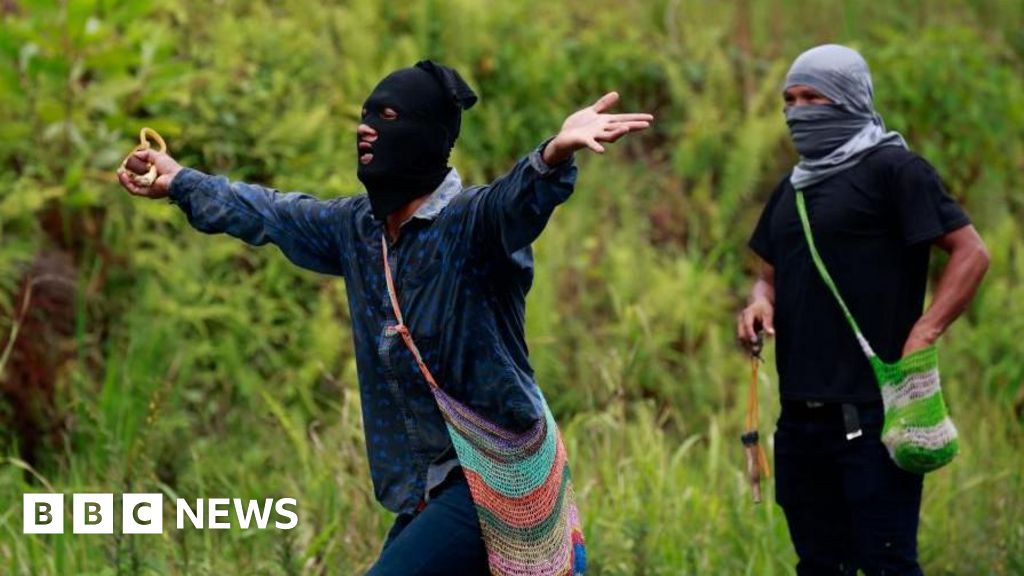ARTICLE AD BOX
First lady Melania Trump visited Capitol Hill on Monday to lobby Congress to pass a bill to combat revenge pornography, including so-called deepfakes.
Mrs. Trump spoke at a roundtable with lawmakers and victim advocates supporting the Take It Down Act, a bill to criminalize publication of non-consensual intimate imagery, more commonly called revenge porn, including AI-generated deepfakes.
The legislation also would require social media companies to implement procedures to remove such content within 48 hours of notice from a victim.
The first lady said her goal in advocating for the legislation is to protect youth from online harm, part of her commitment to the Be Best initiative that she started during President Trump’s first term to improve children’s social, emotional and physical health.
“The widespread presence of abusive behavior in the digital domain affects the daily lives of our children, families and communities,” Mrs. Trump said. “Addressing this issue is essential for fostering a safe and supportive environment for our young people.”
The Take It Down Act — sponsored by Sens. Ted Cruz, Texas Republican, and Amy Klobuchar, Minnesota Democrat — passed the Senate by unanimous consent in February.
Lawmakers participating in the roundtable said Mrs. Trump’s support will help get the bill over the finish line in the House.
“The force of your presence, madam, is not only going to save children’s lives, but will also make this legislation the law of the land,” said Rep. Maria Elvira Salazar, Florida Republican and lead House sponsor of the bill.
Mr. Cruz said he was inspired to draft the bill after meeting with a constituent victim, Elliston Berry of Aledo, Texas, and her parents. Ms. Berry attended the forum and spoke about how, at age 14, a classmate used AI to superimpose an innocent social media picture of hers over someone else’s nude body to create deepfake porn.
“Fear, shock and disgust were just some of the many emotions I felt,” she said, noting she was initially ashamed to tell her parents even though she did nothing wrong.
Ultimately, Ms. Berry did tell her parents, who contacted Mr. Cruz. The senator said he was surprised to learn in his meeting with the Berrys that the deepfake images were still circulating online nine months later. He called the CEO of Snapchat and had them taken down that day.
“It should not take a sitting senator or sitting member of Congress picking up the phone to get a picture down or a video down,” Mr. Cruz said, noting the bill will give every victim “the right to get this garbage taken down.”
Other victims also spoke at the roundtable and shared their stories of how social media companies were not helpful in removing deepfake images or videos.
Classmates of Francesca Mani of Westfield, New Jersey, also created deepfake images of her when she was 14. She recounted how she and the other female victims in her school had their names announced over the intercom, while the male perpetrators were quietly pulled aside for discussions and ultimately only one of the boys was suspended for a single day.
“Two years later, those responsible are still in my school representing in team sports as if nothing ever happened,” Ms. Mani said. “That is not okay.”
House Majority Leader Steve Scalise told Ms. Mani that “those boys shouldn’t still be in school strutting around as if nothing happened.”
The legislation to make publicizing deepfakes or other revenge porn a felony would create consequences, he said, noting, “You tag the word felon to the end of that name, all of those athletic ventures go away, a lot of other things go away, and people will think twice.”
Mr. Scalise and House Speaker Mike Johnson, Louisiana Republicans, said they plan to bring the bill up for a vote but did not say when.
“We are anxious to put it on the floor in the House, to get it to President Trump’s desk for his signature, because we’ve got to do what we can to stop this, and I am a full supporter of it,” Mr. Johnson said.
Mr. Scalise said the bill will get a quick floor vote after it moves through the House Energy and Commerce Committee, where Chairman Brett Guthrie, Kentucky Republican, said it would be a priority “in the next few weeks.”
“I just want to applaud First Lady Melania Trump for lending your voice and the strength of your office to this, because I have no doubt this is going to be the year that we actually get the Take It Down Act signed into law,” Mr. Scalise said.
If the House passes the bill, it would then go to Mr. Trump’s desk for his signature.
Mrs. Trump said she expected more Democratic leaders to participate in Monday’s roundtable. Only Rep. Ro Khanna, California Democrat, attended.
“Surely as adults, we can prioritize American children ahead of partisan politics,” Mrs. Trump said.
Democrats’ low attendance at the event could have been more about its timing — it was held on a Monday afternoon as most lawmakers are flying into Washington for the week — than protesting the Trump administration.
Mr. Khanna said he was “looking at this as a parent and as a leader and not through politics.”
“We’ve got to be able to figure out some ways of coming together as a country as divided as we are,” he said. “I represent Silicon Valley. I’m very proud of the innovation. I’m very proud of the technology. But America should lead in making sure that technology protects kids and protects people.”

 3 months ago
88
3 months ago
88








 English (US) ·
English (US) ·